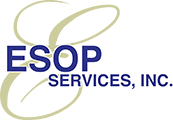Does The Presidential Tax Panel Report Mean What It Says?
by Ronald J. Gilbert
The Presidential Advisory Panel of Federal Tax Reform released its report on November 1, 2005. The report recommends eliminating all defined contribution plans and combining all 401(k) type plans (403(b), etc.) into one “save at work” plan. The ESOP is a defined contribution plan. On the face of it, the report recommends killing ESOPs. Could this really be? The report specifically states that defined benefit plans will be untouched. The report could have put ESOPs in the same category, but it did not. The report also has negative things to say about stock option plans. While the ESOP is extremely different from a stock option plan, could the members of the commission have failed to make a distinction? That is very doubtful with former Senator John Breaux serving as Vice Chair of the Commission. Senator Breaux championed ESOP legislation throughout his senate career and spoke movingly at the funeral of Senator Russell Long, the “legislative father of the ESOP,” regarding Senator Long’s legacy.
Perhaps the commission meant to eliminate just the employee contributory defined contribution plans like 401(k) and 403(b), but not company funded plans such as profit sharing plans and ESOPs. However, there is nothing in the report to suggest that this is the case.
Please Clarify
Until a senior official from the White House, or the Treasury Department, tells us otherwise, we must assume the worst, that the report means exactly what it says – “eliminate all defined contribution plans.” Our hope is that sooner rather than later, we will get a clarification that ESOPs are protected just like defined benefits plans. If that assurance is not forthcoming, there may well be much boarder, negative implications for broad-based employee ownership.
No More Ownership Society?
There has been little said in recent months by the President about the ownership society. This is understandable given the many other issues being dealt with by the Bush administration. This does not in and of itself signal any lessening of the President’s strong support for an ownership society. However, failure to protect ESOPs at the very beginning of the tax reform policy will certainly send a strong signal that the ownership society is no longer an important priority. How else could the elimination of the ESOP, the only plan with a thirty year track record of broadening employee ownership, be interpreted? How else could the elimination of the S Corporation ESOP, which now constitutes the majority of ESOPs in privately held companies, be interpreted? How else could the elimination of an entrepreneurial small business benefit (approximately 90% of ESOPs are in companies of fewer than 500 employees) be interpreted? How else could the elimination of the program that Ronald Reagan strongly supported before he was President, while he was President, and after he left the Presidency be interpreted?
The Next Steps
The Presidential Tax Commission’s recommendations are currently just that, “recommendations.” It will probably be 2007 before the appropriate committees in the House and Senate take up hearings on these recommendations.
The ESOP can and should serve as the foundation of the ownership society, which President Bush so eloquently spoke about in his second inaugural address; “To give every American a stake in the promise and future of our country, we will bring high standards to our schools, and build an ownership society. We will widen the ownership of homes and businesses, retirement savings and health insurance – preparing our people for the challenges of life in a free society. By making every citizen an agent of his or her own destiny, we will give our fellow Americans greater freedom from want and fear, and make our society more prosperous and just and equal.”
That is what ESOPs have been all about for over 30 years!
